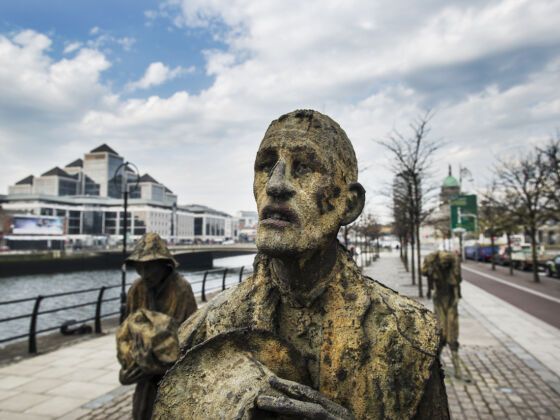It’s our third day in Dublin, and I wake up depressed.
This isn’t a latent sort of sadness. It’s an active force, a thing that comes over me suddenly and without warning, possessing every atom of my body. It’s an attack of what Holly Golightly calls the mean reds in Breakfast at Tiffany’s: “Suddenly you’re afraid, and you don’t know what you’re afraid of.”
